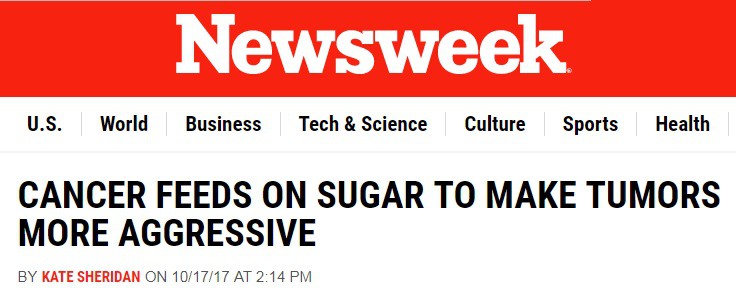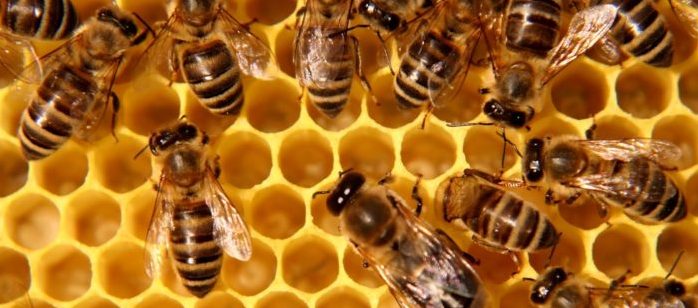
Whenever I talk about cancer and diet, I try to debunk the myth that eating sugar makes cancer grow faster. I explain that all cells, including cancer cells, use glucose (sugar) to fuel their metabolism. Cancer cells often have an accelerated metabolism and utilize blood glucose at a faster rate than other cells. But it’s a gross over-simplification to say that consuming sugar will make cancer grow faster or that eliminating sugar will slow the growth of a tumor.
So imagine my surprise to see a recent headline in Newsweek about a new study published in the prestigious science journal Nature.

Despite the provocative headline, however, this study has absolutely nothing to do with how sugar from foods affects cancer cells. The research explores how some cancer cells differ from healthy cells in the way that they metabolize glucose. This is undoubtedly important to cancer researchers. But it does not add to, subtract from, or change in any way what we know about the interaction of diet and cancer.
The link between sugar consumption and cancer risk is more indirect. Excessive sugar consumption often leads to obesity, which increases cancer risk. But it’s the excess body fat that is the problem, not the source of the calories that caused it.
[bctt tweet=”This is important to cancer researchers, but it doesn’t change what we know about diet and cancer.” username=”nutritiondiva”]
There are a lot of good reasons to limit our consumption of added sugars. Limiting these empty calories can make it easier to maintain a healthy weight. A diet that’s lower in added sugars is also likely to be higher in nutrients. Both can help to reduce your risk of cancer and/or improve your chances of beating it.
But the last thing a cancer patient (or survivor) needs is to stress about whether eating too much sugar may have caused their cancer or made it more aggressive. Neither is true.
See also: Diet Recommendations for Cancer Survivors
Related Listening
 Over a million Americans developed high blood pressure overnight–and, no, it wasn’t the latest headlines.
Over a million Americans developed high blood pressure overnight–and, no, it wasn’t the latest headlines.








